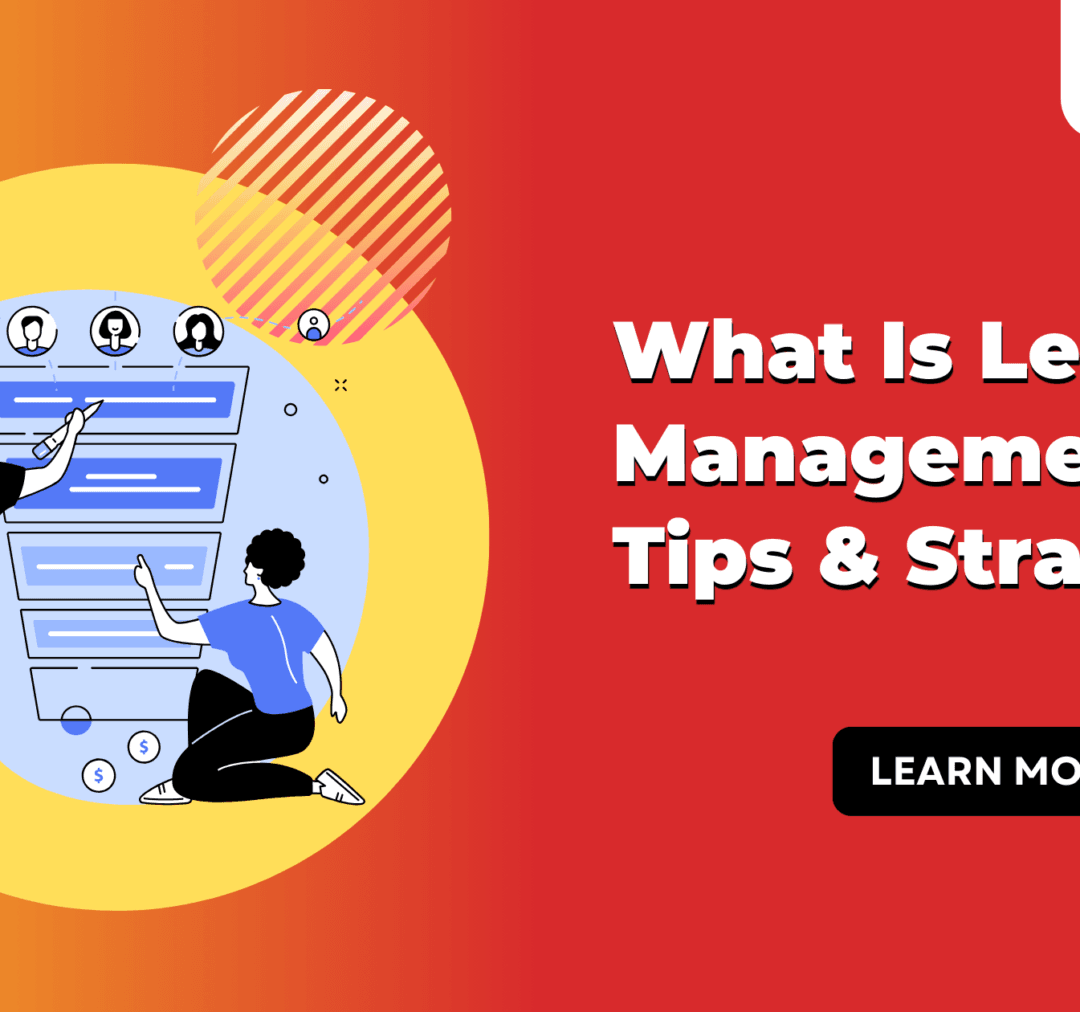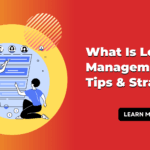These days, because of the rapid growth in digital marketing trends a business lead plays an important role for any kind of business. Regardless of if you’re in B2B or B2C, a good lead management system will enable your business to nurture prospects and turn them into paying customers. But what is lead management and why it so critical? We want to break down the notion, deliver strategies and actionable steps on how you better manage your leas leads in order for you grow up.
What Is Lead Management?
Lead management is the process of capturing, tracking, and managing leads (potential customers) as they move through your sales funnel. It’s a methodical way to make sure that every lead is well taken care of so that they eventually become paying customers. An efficient lead management system works through the various stages, from capturing a newly generated lead to assigning it to the appropriate sales representatives.
Why Lead Management Matters?
Good lead management ensures that no opportunity is missed. It allows you to keep track of every prospective customer, sort leads based on their level of interest, and ensure that those requiring more attention are nurtured through the sales funnel with a customized approach. Without targeted follow-up, potential leads often go to waste, and all those prospects end up becoming lost opportunities
The Lead Management Process

Lead management is a step path to draw consumers from interest in merchandise or services to the purpose of final purchases. The following is a description of the standard lead management process:
1. Lead Generation
This is the necessary first step in the lead management process. Leads can be generated through various channels such as organic search results, paid advertisements, social media posts, or email campaigns. The goal is to attract potential customers.
2. Lead Capture
Once someone expresses interest, it’s important to capture the lead. This often happens through forms on landing pages or via chatbots. Your lead management software should automatically store this data in your CRM, allowing for further processing.
3. Lead Scoring
Not all leads are created equally. Some may be warmer than others, more valuable, or more likely to convert. Lead scoring is the process of determining which leads are more likely to make a purchase based on their behavior and level of engagement.
4. Lead Assignment
Once a lead has been captured and scored, it’s time to assign it to the right salesperson. This ensures that the appropriate team member follows up with the lead at the right time.
5. Lead Nurturing
Most leads don’t convert after the first touchpoint, which is why lead nurturing is critical. This involves building relationships with potential customers by offering them valuable content and personalized communication. Good lead nurturing builds trust and ensures your business stays top-of-mind.
6. Conversion
The final phase of lead management is converting the lead into a customer. A properly nurtured lead will be much more likely to close the deal, thanks to the strategic efforts of your sales and marketing teams.
Best Practices for Managing Leads
1. Reliable Lead Management Software
A lead management system is nothing without good lead management software. Which helps to automate the full process from lead capture / score and deliver them. Common lead tracking software includes HubSpot, Zoho CRM & Salesforce. They come with bells and whistles like lead tracking, email automation, integration capabilities for all of the other tools in your arsenal so you never need to lift a finger manually or remember anything yourself!
2. Qualify Your Leads
Some of the leads are not to be chased immediately The lead scoring should be an important part on every organisation, aiming to focus only on high-quality leads which may convert and would make things easy for the team. The next step is to establish proper lead management criteria and scoring stages based on how leads behave, what they interact with, and their demographics.
3. Timely Follow-Ups
And with leads, that is all about the timing. A quick follow up can mean the difference between making a sale and losing that potential customer. Research has indicated that businesses make 72x more money when they follow up with leads within an hour! Which means you can set reminders and follow-ups using your lead management software so that some of the work is automated.
4. Prioritize Personal Communication
Messages that are too broad will not resonate in the digital age. If you personalize the right message to your leads this is a GREAT way of how you will nurture those clicks into something more valuable. Implement the information obtained from your lead management system for personalizing your email content, offers and follow up communications according to what is relevant or of interest him.
5. Track and Measure Performance
You can not have a lead management plan without measurement! Leverage the data in your CRM and lead management system to compare metrics such as performance trends, conversion rates, response times of sales teams or effectiveness of purchase agents. This information is useful for tuning your approach and streamlining the lead management process in the long run.
Challenges in Managing Leads
Managing leads is challenging for businesses no matter how good their strategies are. It faces all the same obstacles that anybody else does as well:
- Lead Overload: If your sales team get more leads than they can handle, it results in missed opportunities. A lead scoring system can be implemented to streamline and better support those leads that are worth your time.
- No Communication Between Teams: A common scenario in many organizations is that marketing and sales departments work entirely independently of each other. This can lead to bad management of the leads which means many opportunities are lost. Smooth communication between teams is very important.
- Low-Quality Leads Fall Through The Cracks: A lot of ‘ok’ leads never make it in because follow-up is non-existent. This is something that could have been prevented by automating reminders and follow-ups using your lead management software.
Conclusion
To use an old sales cliche again: it will help you drive better leads, close more deals and crush your competitors. You must then be sure of using them right as well and a lead management software will do that task for you. Whether you have little experience with sales lead management or simply want to sharpen your process, staying one step ahead of the competition can help ensure that deals won’t slip through.
Do keep in mind that lead management is not a job done at one go and it needs regular fine tuning. You only need to see if you are doing good, try and correct the mistakes as required or just improve more in controlling how upcoming leads come.








